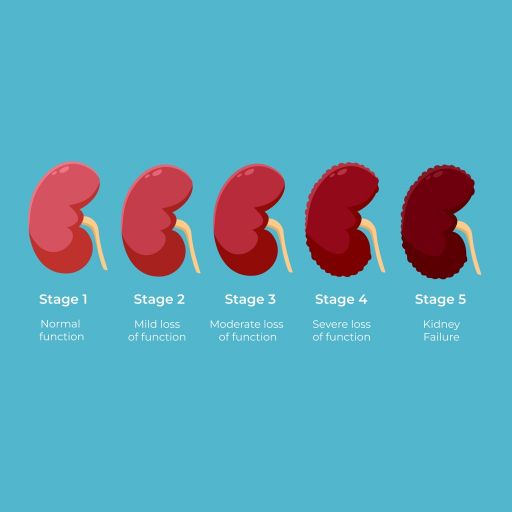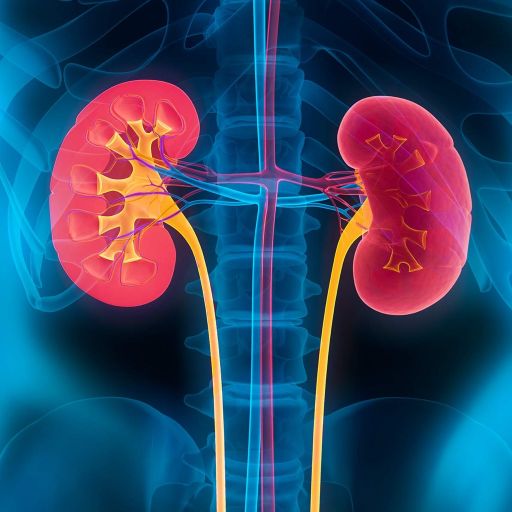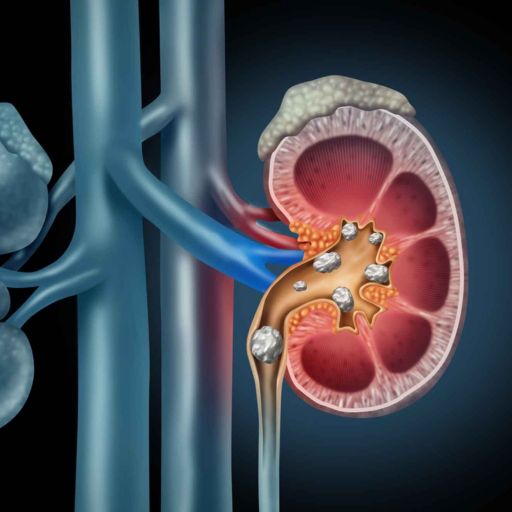Chronic Kidney Disease: Early Symptoms And How To Manage Them
Chronic kidney disease is a condition which occurs when your kidneys are damaged and are unable to filter blood in the way they should function normally. It is simply the gradual loss of kidney function.
Kidneys are important organs of a human body. These organs filter out blood and excess fluid from the blood, which are then removed from the body through blood. In its advanced stage, this disease can result in the accumulation of dangerous levels of fluids, electrolytes and other forms of wastes in your body.
In this article, we are going to learn about the causes, risk factors, symptoms and the ways of managing this disease. Let us begin:
Causes of chronic kidney disease
Some of the main causes of chronic kidney disease are as follows:
●High blood pressure
●Interstitial nephritis, this is a swelling of the kidney’s tubules and the surrounding areas
●Polycystic kidney disease
●Vesicoureteral reflux, a condition which causes urine to flow back towards kidneys
●Glomerulonephritis, a swelling of the filtering units of kidneys
●Obstruction In the urinary tract, mainly due to enlarged prostrate or kidney stones
●Type 1 diabetes
●Type 2 diabetes
●Recurrent kidney infection, popularly known as Pyelonephritis

Risk factors associated with chronic kidney disease
Some of the risk factors which are generally associated with chronic kidney disease are as follows:
●Obesity
●High blood pressure
●Smoking
●Cardiovascular diseases
●Diabetes
●Family history of kidney disease
●Abnormal structure of kidneys
●Frequent use of those medicines which can damage kidneys

Symptoms of chronic kidney disease
Some of the major symptoms of chronic kidney disease are as follows:
Exhaustion and fatigue: Exhaustion and fatigue are the prominent symptoms of chronic kidney disease. If kidneys don’t function in a proper manner, it can result in the accumulation of toxins and impurities in your bloodstream.
This can make you feel tired and exhausted throughout the day. You will be unable to concentrate on even simple activities.
Having a dry and itchy skin: Dry and itchy skin is another sign of chronic kidney disease. Healthy kidneys perform many functions which are important for our body. They filter out toxins and excess fluid from our body.
These organs also help our body make red blood cells. They also keep our bones strong and maintain the perfect amount of minerals in the blood.
In case of chronic kidney disease, your kidneys will be unable to keep the right amount of minerals and nutrients in your bloodstream. This results in mineral and bone disease. Dry and itchy skin indicates this disease.
Blood in the urine: Blood in the urine can be caused by various factors. Chronic kidney disease is one such factor. When your kidneys are functioning properly, they will keep the red blood cells in your body while filtering out toxins and impurities from your body.
If the kidneys stop functioning properly, then the same blood cells can leak into your urine along with toxins. If you notice such a thing, immediately contact a doctor.
Frequent urination: Healthy kidneys filter your blood and pass toxins and impurities out of your body through urine. However, when the kidney filters are damaged, it makes your urine to contain more water and fewer impurities.
This will increase the urge for urination, especially during night. This is one of the most prominent signs of chronic kidney disease.
Foamy urine: If you notice excessive bubbles in your urine, you can consider this as a sign of high levels of protein in your urine. The foam may look similar to the foam you see on the surface while making an omelette. This is mainly because of albumin, which is a protein which is found in both eggs and urine.
Persistent puffiness around eyes, ankles and feet: Another sign of chronic kidney disease is puffy eyes, ankles and feet. This usually occurs when kidneys are not removing excess fluids and impurities from the body.
This excess fluid accumulates in the tissues. This results in swelling of the lower part of your body, although it can affect other areas also like your eyes and feet.
When kidney filters are damaged, it is unable to stop proteins from leaking into the urine. Puffy eyes can indicate that your kidneys are releasing a considerable amount of protein in the urine instead of keeping it in the body.
Having a poor appetite: Poor appetite can happen due to many reasons and chronic kidney disease is one of them. Accumulation of toxins within your body will result in loss of appetite. You will not feel like eating anything.
Having problems in sleeping: When kidneys do not function properly, toxins accumulate and circulate in your blood, which will make it difficult to get an adequate amount of sleep. Sleep apnea is often associated with chronic kidney disease.

How to reduce the risks of chronic kidney disease?
There are several ways by which you can reduce the risks of chronic kidney disease. Some of them have been discussed below:
Try to maintain a healthy weight
Maintaining a healthy weight can reduce the risks of developing chronic kidney disease. Do proper exercises regularly, like skipping and cycling to lose weight. You can also consult your doctor regarding the strategies and medications. If you have a healthy weight, try to maintain it at any cost.
Follow instructions about medications
When you are using non-prescribed medications, such as pain relievers, you must follow the instructions on the package. Taking those medicines without reading the instructions can be fatal. If you take too many pain relievers for a long time without following proper instructions, it can cause kidney damage.
Try to avoid smoking
Smoking can damage your kidneys. If you already have kidney problems, smoking can make it worse. This is the reason why you should try to avoid smoking altogether. It is not easy to give up the habit of smoking. You can consult a doctor and discuss about the strategies of quitting smoking.
The doctor may even give you some medications which can help you to quit smoking.
Chronic kidney disease is a deadly disease which can be fatal if not treated properly at the right time. One must always take any symptom of this disease seriously. Maintaining a healthy lifestyle can be helpful in reducing the risks of this disease.
OTHER NEWS
-
- Hiking in Autumn and Winter A Different Kind of Life for the Elderly
- By zyy 25 Sep,2024

-
- Reimagining Retirement: Taking Control of Your Financial Plan
- By YCY 15 Oct,2024

-
- Halloween from an Older Adult's Perspective A Joyful Mix of Tradition and Innovation
- By yl 10 Oct,2024

-
- Yoga for the elderly, fall and winter seasons for health and well-being
- By yl 26 Sep,2024

-
- Why Golf is a Fall Favorite for Seniors
- By YCY 08 Oct,2024

-
- Music and vitality: the charm and fun of the senior choir
- By zh 27 Sep,2024

-
- Golf, an activity where you can enjoy the natural scenery!
- By LH 29 Sep,2024

-
- Strength training for seniors the key to slowing muscle loss
- By YL 15 Oct,2024

-
- How do the elderly stay healthy and energetic by walking their dogs?
- By zh 09 Oct,2024

-
- The appeal of the outdoors for seniors in the fall and winter in the USA!
- By zyy 27 Sep,2024

-
- Outdoor Winter Activities: Health Precautions For Seniors In Cold Weather
- By Prodosh Kundu 15 Oct,2024

-
- The Gift of Years: Thanksgiving in the Eyes of Older Americans
- By MTH 08 Oct,2024

 1
1 1
1